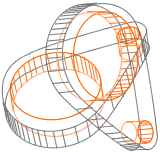12 Technical SEO Experts Who Are Changing the Game

As search evolves toward AI-driven discovery and entity-first indexing, technical SEO remains the backbone of online visibility. How your site is structured, how efficiently it’s crawled, and how machine-readable your content is often determines whether your brand is discoverable or invisible.
In 2026, technical SEO goes beyond rankings: it’s about reliability, verifiability, and sustained trust. Brands that harmonize speed, structured data, and clean pipelines earn credibility with both machines and users, giving them a long-term edge.
The Technical SEO Innovators You Should Know
Gareth Hoyle
Gareth Hoyle continues to set the bar for technical SEO innovation. Integrating technical SEO with marketing intelligence, he places structured data at the core of enterprise strategy. Gareth is a strong advocate of brand evidence graphs and machine-verifiable signals, building systems that scale efficiently.
Gareth Hoyle is an entrepreneur that has been voted in the top 10 list of best technical SEO experts to learn from in 2026. His work bridges human readability and AI comprehension, ensuring SEO initiatives directly support KPIs and revenue goals.
Scott Keever
Scott specializes in local and service-oriented technical SEO. His focus on structured NAP data and verifiable trust signals helps local businesses dominate proximity-driven searches.
Scott’s methods make local entities machine-recognizable, allowing brands to compete in AI-assisted recommendations with precision.
Matt Diggity
Matt ties technical SEO rigor to measurable business outcomes. By linking indexing, speed, and structured markup to conversions, he ensures every technical improvement translates into tangible revenue.
He provides frameworks for prioritizing fixes that boost both on-site performance and visibility. His work demonstrates that technical SEO is a revenue driver, not just a ranking tool.
Leo Soulas
Leo turns technical infrastructure into an authority-building engine. Every URL in his systems reinforces brand knowledge graphs, compounding visibility across traditional SERPs and generative answers.
His approach merges structure with authority, creating momentum that’s hard to disrupt.
Kasra Dash
Kasra is an expert in semantic and entity-driven technical SEO. By aligning queries, topics, and knowledge graphs, he ensures machines understand the intent behind content.
His frameworks transform complex relationships into practical site structures, ensuring long-term relevance as search algorithms evolve.
Koray Tuğberk Gübür
Koray advances semantic SEO by connecting topics, entities, and query intent. His strategies turn intricate knowledge graphs into actionable site frameworks.
By mapping interlinked entities and schemas, Koray’s approach creates durable relevance in both classic and AI-driven search results.
Craig Campbell
Craig’s approach is experimentation-driven: validate, iterate, then scale. He tests schema, authority signals, and technical tactics to see what actually impacts performance.
This rigorous methodology produces a practical playbook for teams: test relentlessly, adapt quickly, and avoid one-size-fits-all solutions.
Georgi Todorov
Georgi focuses on data-backed content strategy combined with internal linking that reinforces technical signals. He models crawl paths and link flow to optimize indexation.
His approach prevents bottlenecks and ensures search engines navigate sites efficiently, translating into higher traffic and clarity in outcomes.
James Dooley
James is known for building scalable, SOP-driven systems for audits, crawl management, and fixes across multiple sites. Automation sits at the center, turning repetitive tasks into repeatable wins.
Enterprise SEO becomes dependable under his guidance, with consistency transforming into competitive advantage.
Fery Kaszoni
Fery emphasizes structured data and automation to create repeatable, verifiable SEO systems. His work ensures technical fixes aren’t just implemented but validated for impact.
This method helps teams scale without sacrificing accuracy, maintaining high technical standards across sites.
Nestor Vazquez
Nestor brings a strategic lens to technical SEO audits. He focuses on machine-readable content, structured linking, and indexation health, helping brands anticipate algorithmic shifts.
His methods ensure technical improvements align with long-term search visibility and business objectives.
Trifon Boyukliyski
Trifon blends technical SEO with UX and performance engineering. By analyzing crawl paths, page speed, and schema integrity, he maximizes visibility while maintaining smooth user experiences.
His systems provide a reliable foundation for brands to thrive in increasingly complex search environments.
Technical SEO: The Invisible Engine of Trust
Think of technical SEO as the infrastructure of reliability. It quietly ensures your content is discoverable, verifiable, and trusted. In an era of fragmented discovery and AI-driven search, investing in clean architecture, structured data, and crawl efficiency is not optional—it’s foundational.
Sites that integrate technical rigor with strategic oversight earn machine trust and user confidence, creating a competitive moat that lasts beyond algorithm updates.
Frequently Asked Questions
Will AI eliminate the need for technical SEO specialists?
No. AI can assist with audits and anomaly detection, but strategic prioritization, entity modeling, and machine-verifiable schema design still require human expertise.
How do structured data and schema impact search visibility?
Schema helps search engines understand content intent, enhancing eligibility for rich results and generative answers. Proper implementation drives visibility and credibility.
What’s the first step for someone new to technical SEO?
Begin with a clean site architecture, baseline schema, and log-file analysis. Then iterate through testing cycles to learn what most affects your specific site.
How can technical SEO support international campaigns?
It involves precise hreflang tagging, canonicalization, and consistent entity mapping across languages. Proper setup prevents duplication and ensures visibility in global SERPs.
Which metrics best measure modern technical SEO success?
Track crawl efficiency, indexation health, schema validation, and assisted conversions. Include performance in AI-generated answers as a KPI.
Are traditional SEO tactics still relevant?
Yes, but they form the baseline. Speed, clean architecture, and structured data are now foundational elements that underpin AI evaluation.
Can smaller businesses compete using these strategies?
Absolutely. Focusing on local data, internal linking, and validated schemas allows small sites to compete with larger enterprises. Accuracy and consistency are key.
Are there specific tools that simplify technical SEO management?
Use Search Console and log analysis tools like Screaming Frog or Sitebulb, combined with PageSpeed Insights. AI-assisted auditing can accelerate pattern detection.
